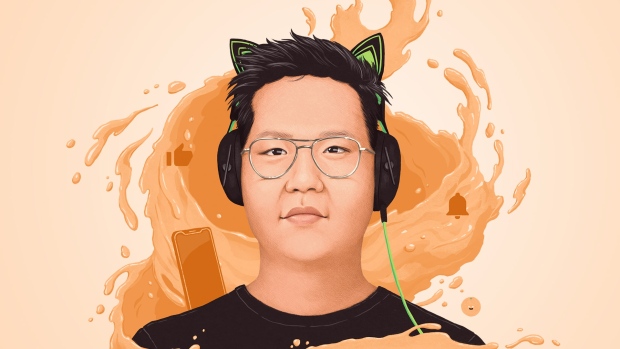Jul 20, 2021
How I built a YouTube empire and learned finances can be complicated
Presented by:


I was always really good at video games. When my friend told me to start a YouTube channel I was like, there’s no way anyone’s going to want to listen to or even care about what I can show or teach them. But then he helped me post my first video and right off the bat I got 10,000 views. The third video I posted was promoted inside a video game and it got a million views. It got crazier and crazier from there.
I focus on mobile games — the kinds of games you play on your phone. I walk people through the games to show cool features and give tips. People always think that becoming a YouTube success just happens naturally, and you don’t have to work to grow it. But in my case, it was mostly hard work. In the beginning, it would take me up to 20 hours to make one video. I would try to post as much as possible, but I could only do it a few times a week. I was putting in 60 hours a week to make these videos. So I began to focus my time and energy into producing videos when there was really big news, like a new game or a big gaming announcement. As I got better at making videos I could post more often and grow my views.
While YouTube pays per view and I was making a little bit of money from it, my first real paycheque came when I started doing sponsor deals with Amazon. I got offered a thousand dollars to feature a video on my channel. I look back and remember that I thought that was a lot of money. As my subscribers and views increased, so did my endorsements and other sponsorship opportunities. Now, what I do and how much I make could be comparable to a notable Hollywood actor. There’s money from the content, but there is also money from endorsements, partnerships and other business opportunities. One way of conceptualizing the magnitude of what I do? The Friends finale had over 50 million viewers in the U.S. I am pulling in close to that many views every single month.
I’ve been one of the lucky ones during the COVID-19 pandemic. During lockdowns, gaming participation went up. We’ve seen a spike in daily active users in the gaming industry. For me, that means my views are also up, even while advertising revenue was temporarily down. I’ve since launched four more YouTube channels and hired more editors to help me with production.
I didn’t have any plan for all this money. When I started five years ago, I was a typical young person in his 20s. I just knew to never overspend on my credit card. I did know a bit about business — right out of high school I was working in retail management positions, which gave me a general idea of basic business concepts.
I remember having dinner with a friend who mentioned I had too much money just sitting in cash. He said that if I didn’t have a good investment plan, I was actually losing thousands and thousands of dollars a month on depreciation due to inflation. It was true. I was flush with cash, as this industry is a cash-generating machine, but doing something with it seemed overwhelming to me. I began to realize I needed someone to handle the money side of things.
Now I have a team of financial professionals who all work together to help me grow my money while I focus on growing my channel and my audience. That includes working with a cross-border tax specialist, since my income is also generated in the U.S. and across Europe.
My investment strategy might also be a little unorthodox. While my investment professionals handle most of the growth of my money, I have some personal and unique ways that I want to invest. For example, I have equity in an e-sports team, which is like a professional sports team but for online gaming. I also bought some cryptocurrency when it was at an all-time low. I expect there could be some weird tax implications when I cash out.
As my business and personal life changes and grows, I’m learning about how finances reach into all parts of my life. I now have a serious girlfriend, and we are talking about moving in together. My advisor has pointed out that my financial situation can complicate relationships and has put us in touch with professionals who can help us with a cohabitation agreement.
I also recently bought a (very nice) luxury sports car. My advisor planted the thought with me that a car may not have a good return on investment. Truthfully, I still bought the car. But instead of buying new, I bought one that was two years old.
AS TOLD TO
DENISE O’CONNELL: MONEYTALK LIFE
ILLUSTRATION: VERONICA PARK








